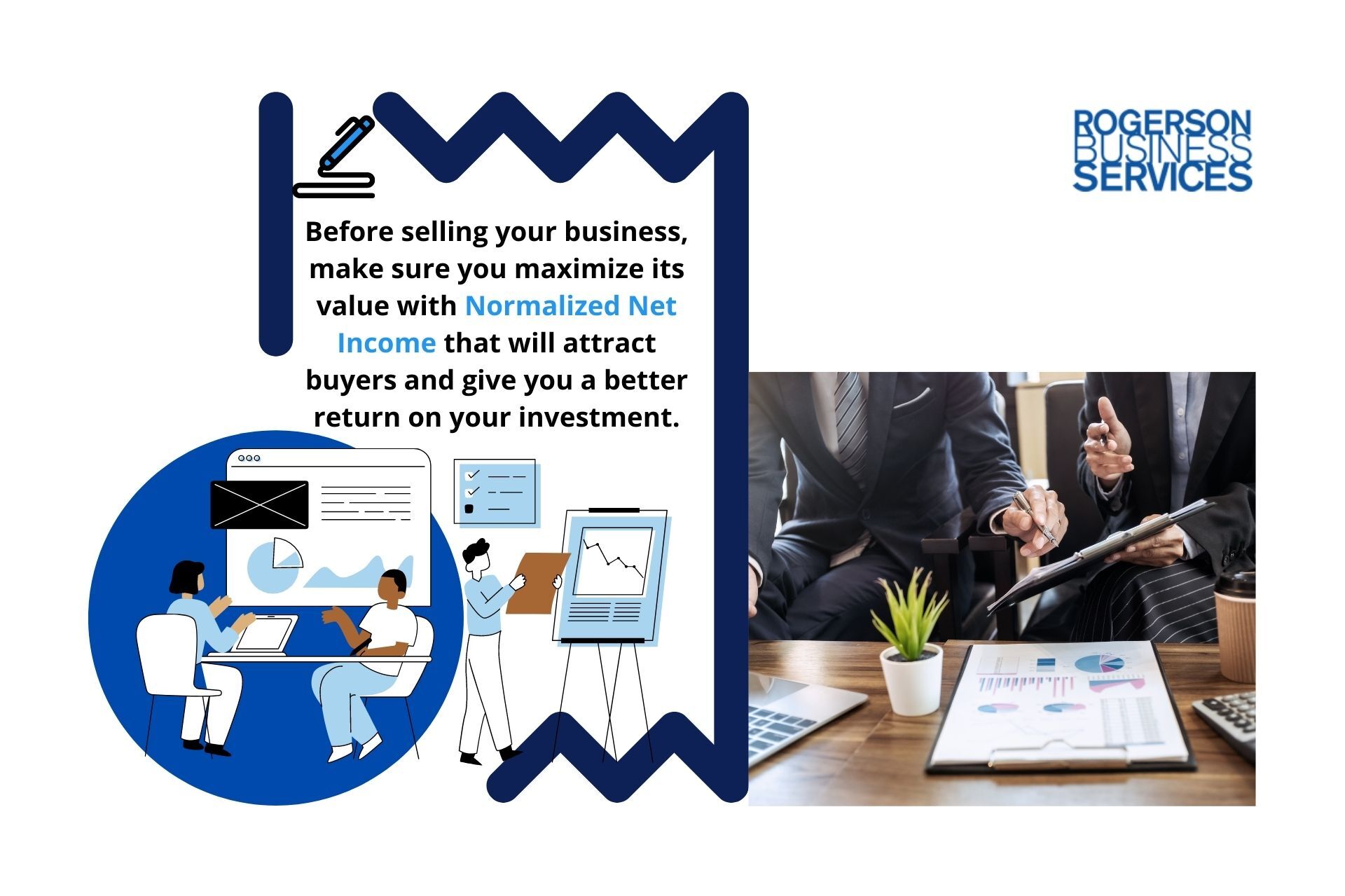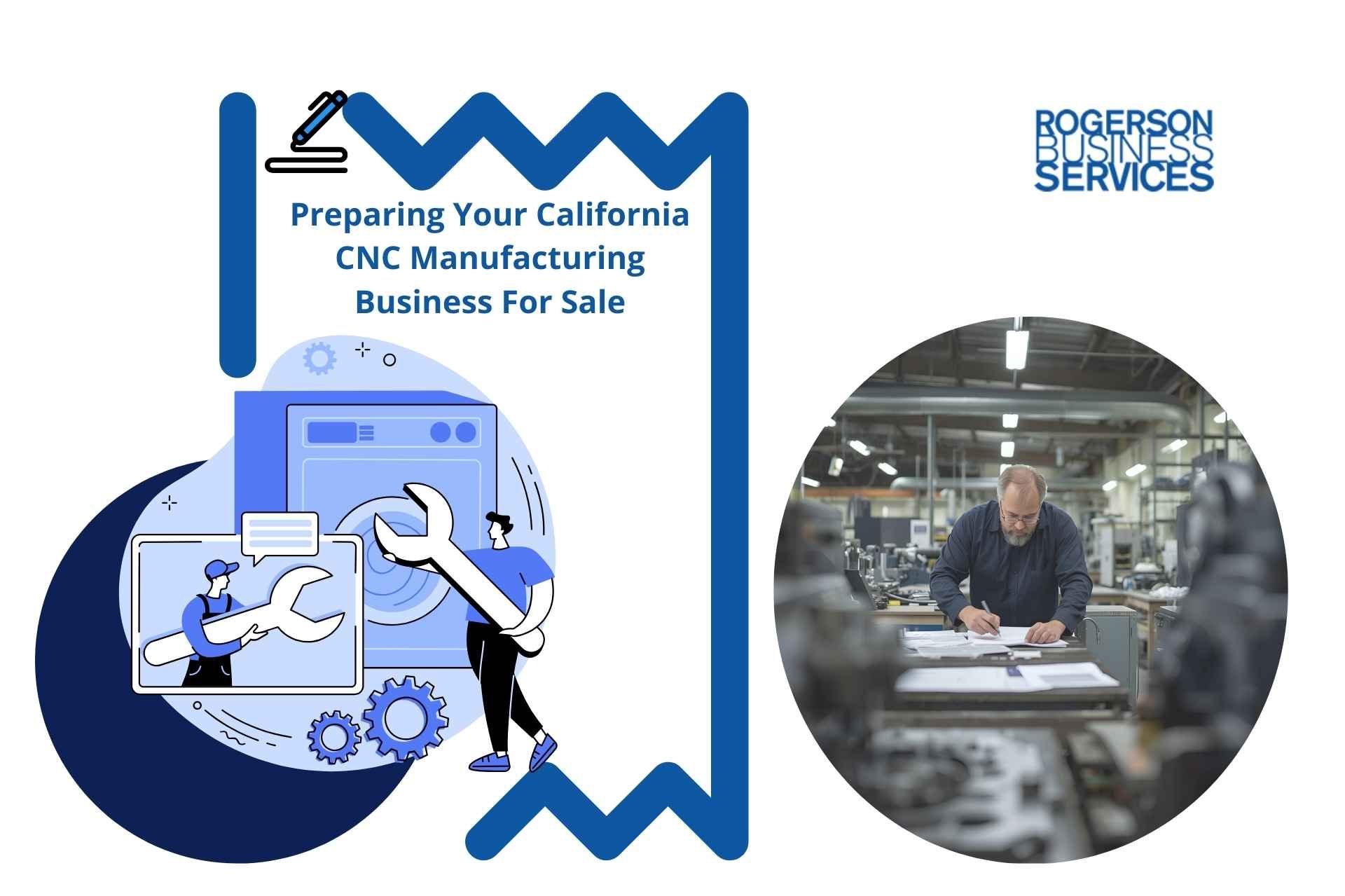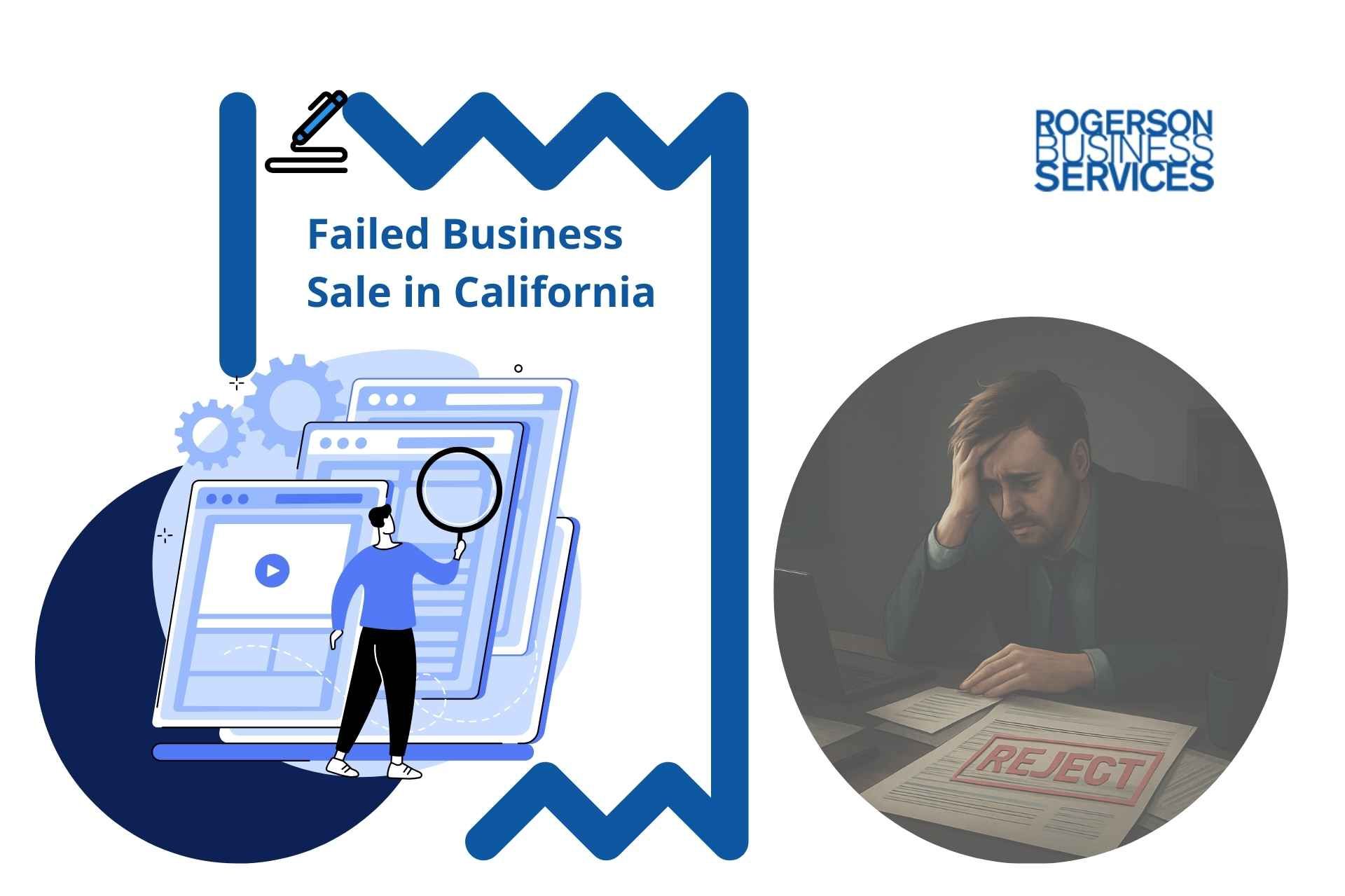Normalized Net Income | Selling a Business in California
Normalized Net Income
Normalized net income or earnings is to eliminate expenses not typically incurred by the company to adjust the income statement for potential buyers when selling a lower middle market business in California.

Understanding the importance of normalized net income or cash flow is crucial If you want to sell your lower middle market business successfully in California, you must showcase the health and performance of your business on your financial statement.
Normalized Earnings
In normalized earnings, you eliminate expenses not typically incurred by the company to adjust the income statement for potential buyers. Future buyers should not see normalized costs on their income statement to show a more realistic return on investment.
Benefits:
- Revenue is smoothed by normalizing earnings, which removes seasonal effects.
- It gives a more accurate picture of an organization's core business.
- When a company experiences multiple one-time events, it is possible to normalize earnings per share to compare two companies.
Types of normalized earnings
The typical income statement includes several unusual expenses. These can be classified as follows: Type A and Type B.
Type A: Non-recurring gains or losses
By normalizing earnings, prospective buyers can see what a typical income statement includes. When normalizing earnings, unusual costs can be eliminated, such as litigation and non-operating assets.
Type B: Discretionary Expenses
A prospective buyer may assume that certain expenses are incurred regularly due to not recording certain expenditures at a fair market value price. You should indicate that these earnings are not the result of the business if you include these expenses. The list covers leisure, transportation, startup fees, and bonus payments.
How to use normalized net income to provide the most accurate financial performance of a business:
- Find out what the Return on Equity was over the last four years.
- Calculate the average return on equity over that period.
- To normalize net income, you must multiply the current shareholder's equity on the balance sheet by the average return on equity mentioned above.
- Divide your normalized earnings or cash flow by the number of shares outstanding to find your normalized earnings.
Normalized Cash Flow
This adjusted financial statement is called a normalized financial statement, which adjusts non-recurring expenses and revenue to give an accurate picture of a company's economic performance. When you normalize a financial statement, you remove all anomalies, including non-operating assets and liabilities that are not part of the business's regular operations. Normalized financial statements enable reliable and comparable comparisons.
Understanding how to calculate normalized cash flows for your business is essential to a successful business transfer. A normalization process involves adjusting non-recurring expenses and revenues that are too high or too low. Business sellers, buyers, lenders, and appraisers use this calculation to determine your business' ability to service acquisition debt.
After the business has paid operating expenses, adjusted for personal items of the shareholders, invested in its maintenance and growth, and adjusted for net working capital, net capital is the cash available to the business at the end of an accounting period.
For the most part, acquisition financing is required to transfer a business in the micro-market, therefore both buyers and sellers should be fully knowledgeable about calculating NCF. A business buyer must calculate the previous three years' annual NCF before estimating the following five-year monthly cash flow. If the business reported strong and growing earnings but did not generate positive cash flow for a specific reporting period, it cannot be determined until accurate NCF is calculated.
One example is an organization that earns $500k per year in income, but spends $500k in capital expenditures; these companies had no free cash flow. They were profitable, but could not service more debt. Furthermore, a reduction in cash flow can negatively impact cash flow during the year.
What Is The Purpose of Normalized Financial Statements?
To determine a company's true financial standing, investors might request a normalized financial statement, which would include cash flow, revenue, and expense. A normalized financial statement might be requested by potential buyers to estimate the business' profitability. All discretionary expenditures, one-time gains, and losses are removed when a financial statement is normalized. Normalized financial statements reflect a company's typical business activities.
- Adjusting for the owner's salary and expenses: The salaries and allowances of owners are usually determined by private companies. Allowances may include travel expenses, internet, and phone bills, fuel and vehicle costs, and entertainment costs. Employees withdraw these amounts from the company's account. The company's earnings must be added back to all of these expenses during the normalization process.
- Adjusting for the Rental Expenses and Earnings: Often, the companies pay a rent that is higher or lower than the market value. The expense is adjusted to eliminate this discrepancy. Rents generated from properties that are not part of the company's core business should also be eliminated from the financial statement. Such loans should also be excluded from the statement.
- Removing Non-recurring Expenses and Earnings: To calculate the actual financial performance of a company, all one-time expenses like renovations, sale of an asset, and insurance payouts. should be added to the company's revenues.
- Eliminating Expenses of Extraordinary Events: When normalizing income statements, a company may need to include expenses associated with extraordinary events, for example, storm damage, litigation, and government decisions.
- Removing Discretionary Expenses: These expenses are not directly related to the company's usual operational costs. Accordingly, these expenses should be adjusted in a normalized statement.
EBITDA Adjustments Due Diligence
EBITDA represents an organization's earnings before interest, taxes, depreciation, amortization, and adjustments. A normalized EBITDA that eliminates anomalies will be more accurate and easier to compare to other companies and an industry's EBITDA.
Benefits:
- Adjusted EBITDA excludes non-recurring, irregular, and one-time items that may distort EBITDA.
- The adjusted EBITDA metric gives analysts a means to compare different companies in the same industry on a more meaningful basis.
- As GAAP financial statements are not required to include Adjusted EBITDA, companies report standard EBITDA instead.
An entity's earnings before interest, taxes, depreciation and amortization ("EBITDA") are typically normalized when a financial due diligence process completes. In various capital structures and tax issues associated with transactions, EBITDA usually refers to earnings before interest and taxes since it encompasses earnings before interest and taxes.
EBITDA is calculated before depreciation and amortization. This is to account for variances in capital investments, depreciable assets, and depreciation methods.
Calculating Adjusted EBITDA
EBITDA is calculated by subtracting a company's net income from interest expense, taxes, and non-cash charges including depreciation and amortization. You can also subtract non-routine costs, for instance, owner compensation, from peer group averages, non-routine costs, and companies with insufficient staff.
See how EBITDA is calculated in the following business sectors in California
- Calculating and valuing a manufacturing business in California
- How to value a distribution business? Use multiples cash flow calculations
- How to value a professional services business based on profit calculations
- EBITDA multiples for logistics companies with best calculation methods
Conclusion
For your business to be valued and sold successfully in 2023, you should hire an experienced lower middle market business broker who can drive an accurate business valuation by applying proper accounting and valuation practices like the adjusted or normalized net income among many other means of properly calculating a business value.
If you are a retiring business owner looking to exit your lower middle market business in California, here are five tips to get you started:
1. Don't wait until the last minute to start planning your exit. The process of selling a lower middle market business can take a long time, so it's important to start early.
2. Have a clear idea of what you want to get out of the sale. Know your goals and what you're willing to negotiate.
3. Choose the right type of buyer. Not all buyers are created equal, so do your research and find the right one for your business.
4. Be prepared for a lot of due diligence. M&A buy-side due diligence is when buyers will want to know everything about your business, so be ready to provide documentation and answer questions.
5. Be flexible with the terms and conditions of the deal. It's important to be open to negotiation to get the best possible deal for your business.
Rogerson Business Services, also known as, California's lower middle market business broker is a sell-side M&A advisory firm that has closed hundreds of lower middle-market deals in California. We are dedicated to helping our clients maximize value and achieve their desired outcomes.
We have a deep understanding of the Californian market and an extensive network of buyers, which allows us to get the best possible price for our clients. We also provide comprehensive support throughout the entire process, from initial valuation to post-closing integration.
Our hands-on approach and commitment to our client's success set us apart from other firms in the industry. If you consider selling your lower middle market business, we would be honored to help you navigate the process and realize your goals.
If you have decided to value and then sell your lower middle market business or still not ready, get started here, or call toll-free 1-844-414-9600and leave a voice message with your question and get it answered within 24 hours. The deal team is spearheaded by Andrew Rogerson, Certified M&A Advisor, he will personally review and understand your pain point/s and prioritize your inquiry with Rogerson Business Services, RBS Advisors.
This is part of business valuation methods to answer what's my company worth series ->
Hey there! Can we send you a gift?
We just wanted to say hi and thanks for stopping by our little corner of the web. :) we'd love to offer you a cup of coffee/tea, but, alas, this is the Internet.
However, we think you'll love our email newsletter about building value and properly position your company before transition/exit your business ownership.
As a special welcome gift for subscribing, you'll also get our helping and educational guides, tips, tutorials, etc.. for free.
It's filled with the best practices for retiring serial business owners like Dan Gilbert, Larry Ellison, Warren Buffett, and many more.
Just sign up for our emails below.


